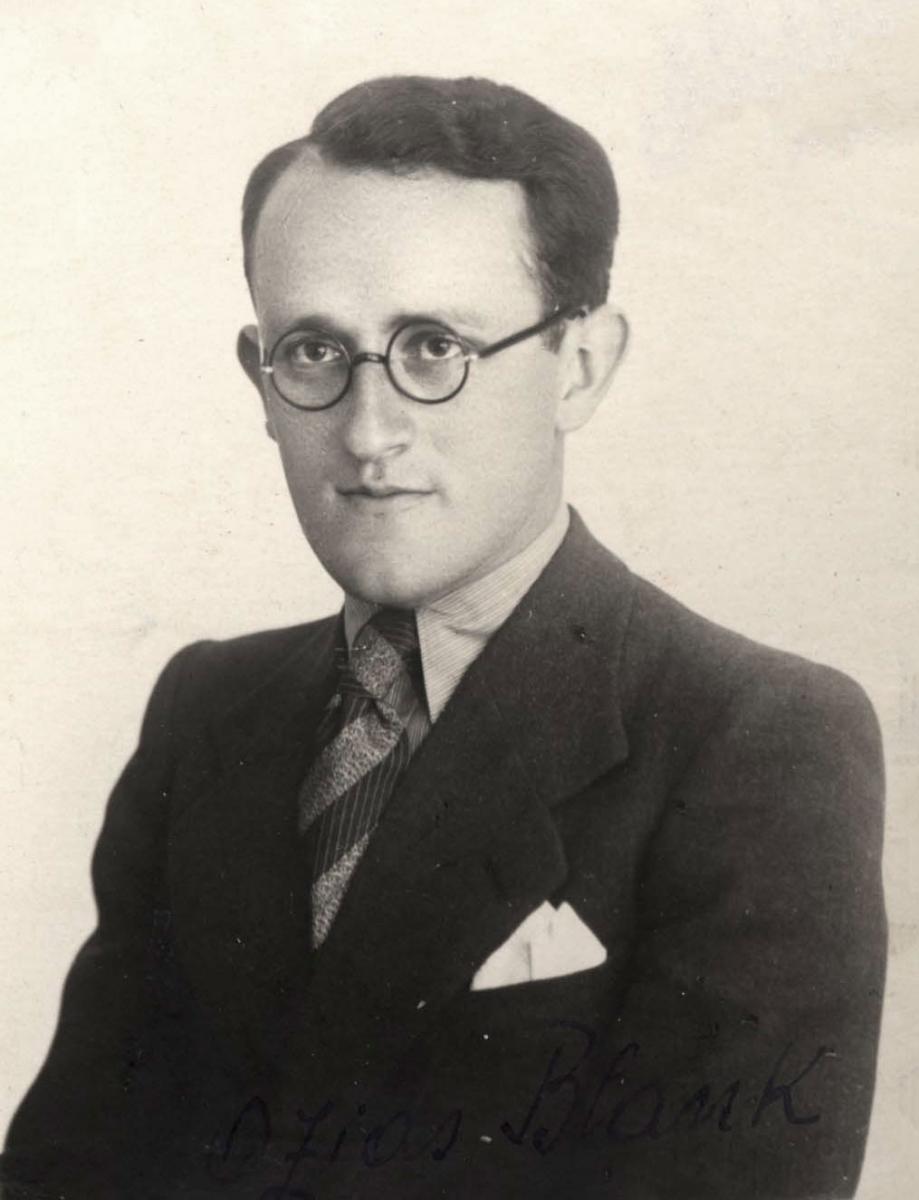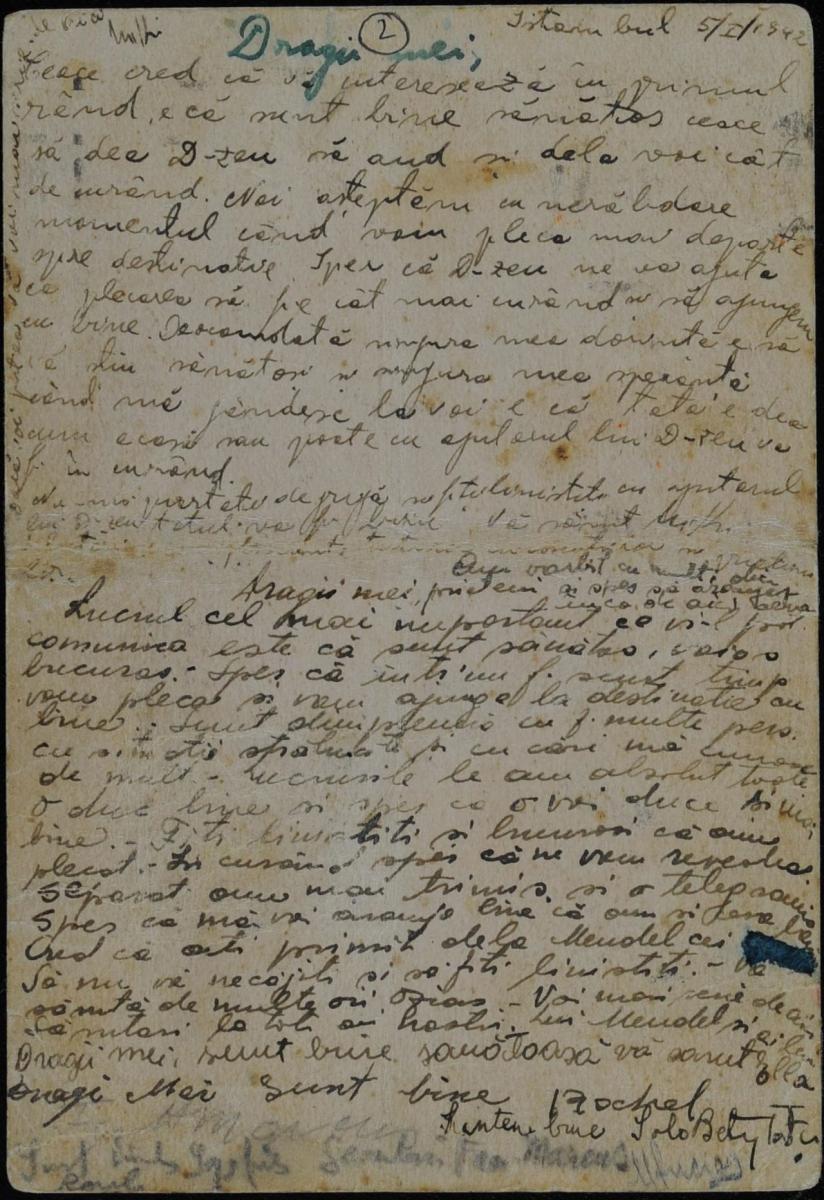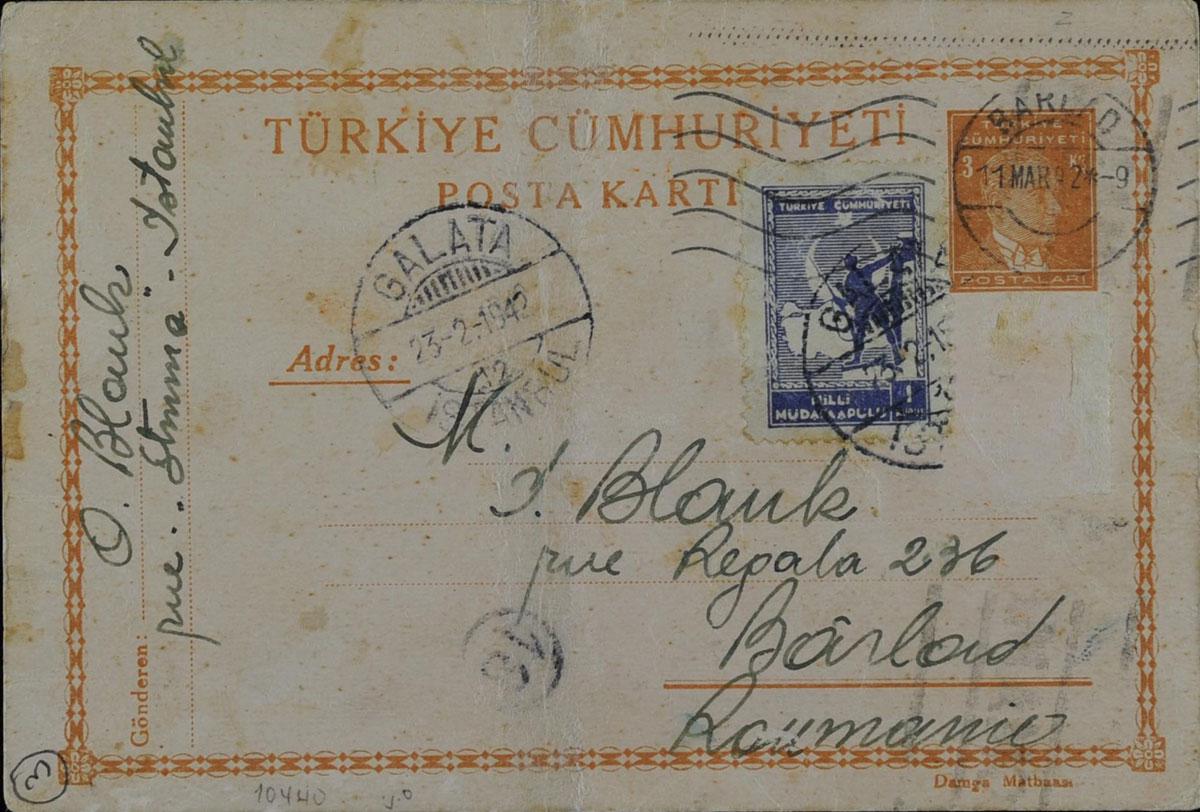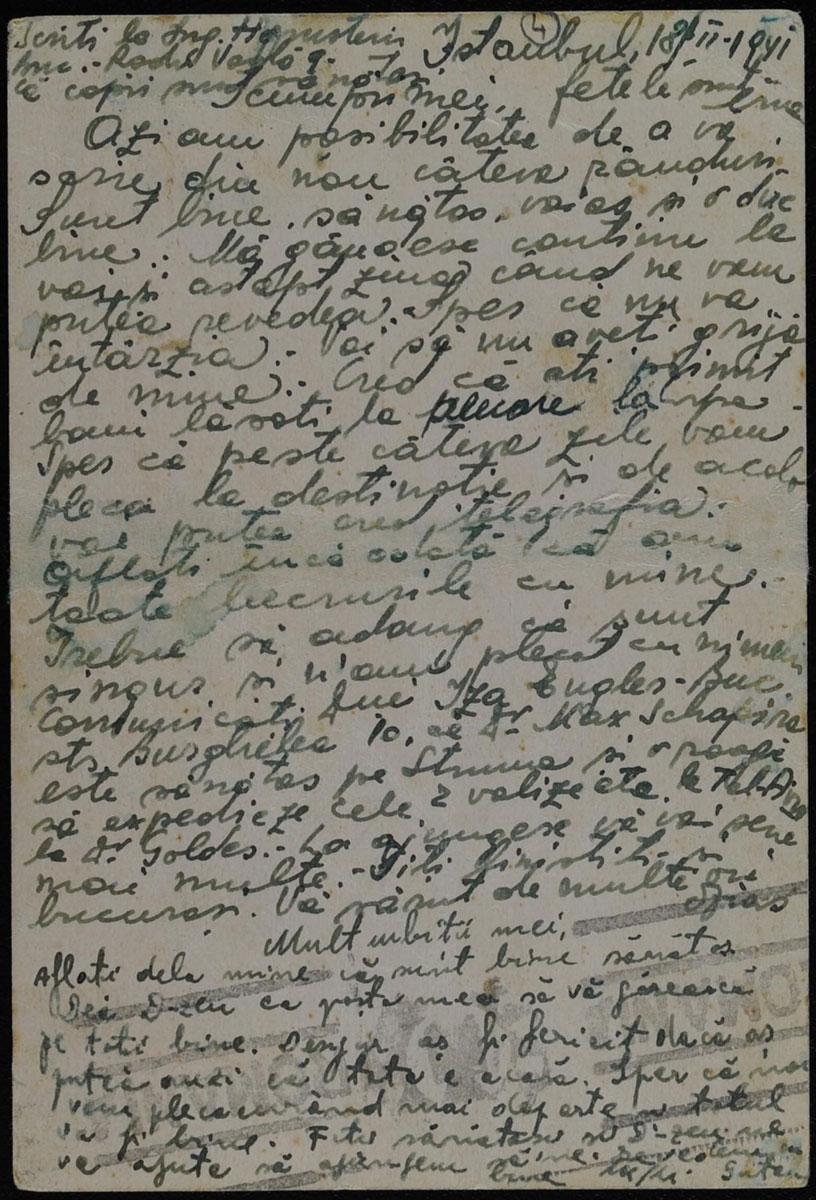
Hall of Names, Yad Vashem


Yad Vashem Archives O.11/64


Yad Vashem Archives O.11/64


Yad Vashem Archives O.11/64

Sunday to Thursday: 09:00-17:00
Fridays and Holiday eves: 09:00-14:00
Yad Vashem is closed on Saturdays and all Jewish Holidays.
Entrance to the Holocaust History Museum is not permitted for children under the age of 10. Babies in strollers or carriers will not be permitted to enter.

Hall of Names, Yad Vashem


Yad Vashem Archives O.11/64


Yad Vashem Archives O.11/64


Yad Vashem Archives O.11/64

I… think about you all the time, and impatiently await the day when we can be reunited. I hope that day won't take long coming.
Ozias Blank, son of Bracha-Raizel and Itzik, was born in 1913 in Barlad, Romania. He was an economist, and single. In 1941, he went on board the Struma at Constanța port, on his way to Eretz Israel (Mandatory Palestine). There were approximately 780 Ma'apilim (illegal immigrants) on board, and ten crew members, some of whom were Jewish. With considerable difficulty, the ship reached the port at Istanbul but the Ma'apilim were not allowed to disembark.
David Stoliar, sole survivor of the Struma voyage, later wrote:
100 empty postcards arrived on board, the distribution of which caused actual brawls. In the afternoon, people were a little more relaxed, and happy that they could establish some kind of contact with the outside world. Everyone huddled up with their families to discuss how best to fill the small space available on the postcards that had been so difficult to obtain. There was much to write, enough to fill a book, but we had to express everything on a tiny postcard. To my mind, never in the history of letter writing, if such a chronicle exists, did they write the words "terrible", "unbearable", with the same intensity as when they were used to describe our journey, the bedrooms, the food and the sanitation situation on the ship. People wrote sitting on beds, in corners of the deck, on the wooden walls. In pencil, fountain pen, or simply with a stick, onto the edge of which they tied something like a nib and wrote…
In a postcard written on board of the Struma on 18 February 1942, Ozias wrote:
My dear ones,
Today I was able to write you a few lines. I feel well, and think about you all the time, and impatiently await the day when we can be reunited. I hope that day won't take long coming. Please don't worry about me, I hope that in a few more days, we will be able to continue our journey and reach our destination. Then I will write to you again. I lack nothing, but I am alone…
Kisses, with love, Ozias…
This was the last sign of life from Ozias. On 24 February 1942, about a week after he sent the postcard, the ship was sunk by a Soviet submarine and all the passengers except for one drowned in the Black Sea. Ozias was among the victims.
In 1956, Cecila Mosko, Ozias's sister, submitted a Page of Testimony to Yad Vashem in his memory.

Thank you for registering to receive information from Yad Vashem.
You will receive periodic updates regarding recent events, publications and new initiatives.

"The work of Yad Vashem is critical and necessary to remind the world of the consequences of hate"
Paul Daly
#GivingTuesday
Donate to Educate Against Hate


Worldwide antisemitism is on the rise.
At Yad Vashem, we strive to make the world a better place by combating antisemitism through teacher training, international lectures and workshops and online courses.
We need you to partner with us in this vital mission to #EducateAgainstHate
The good news:
The Yad Vashem website had recently undergone a major upgrade!
The less good news:
The page you are looking for has apparently been moved.
We are therefore redirecting you to what we hope will be a useful landing page.
For any questions/clarifications/problems, please contact: webmaster@yadvashem.org.il
Press the X button to continue



